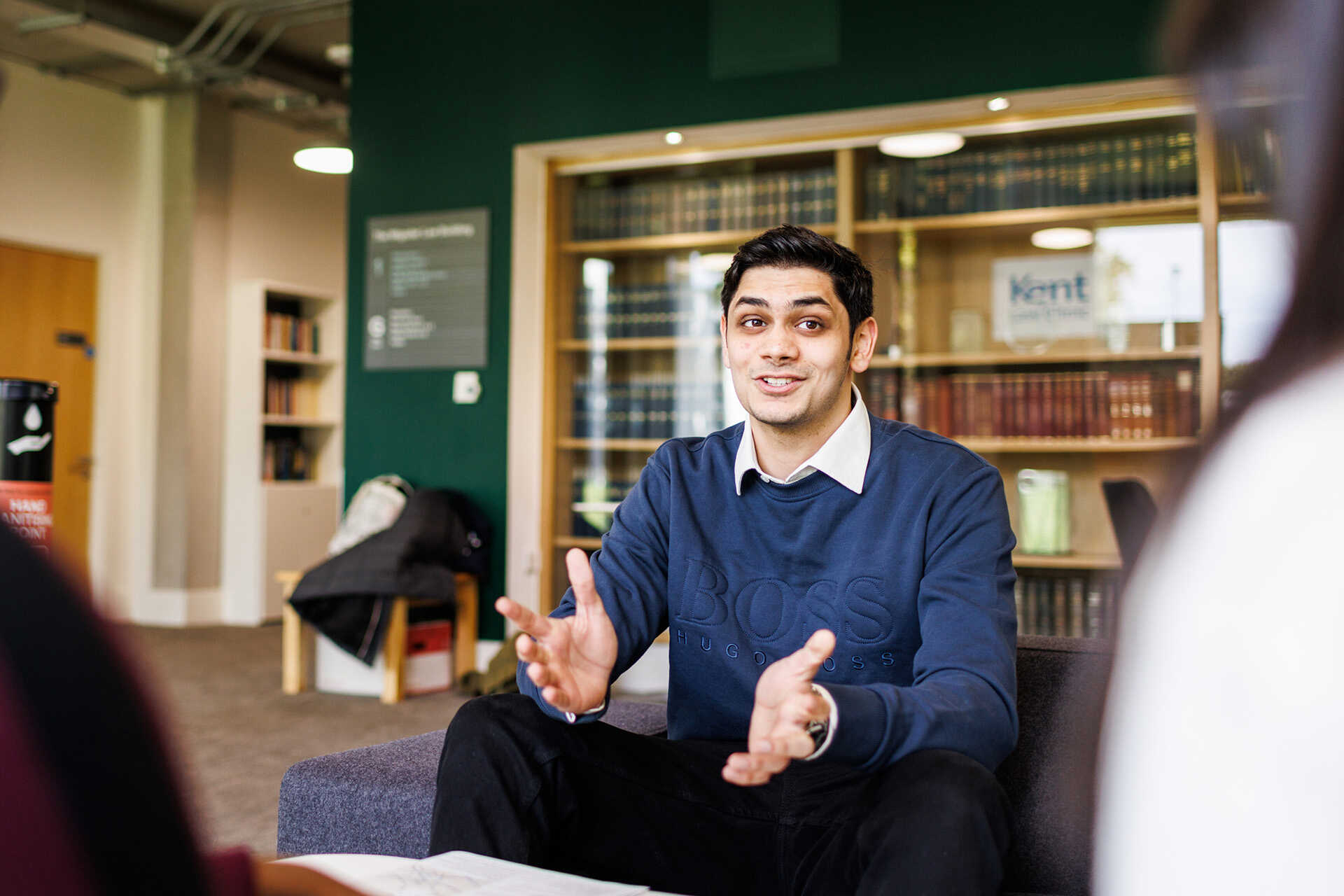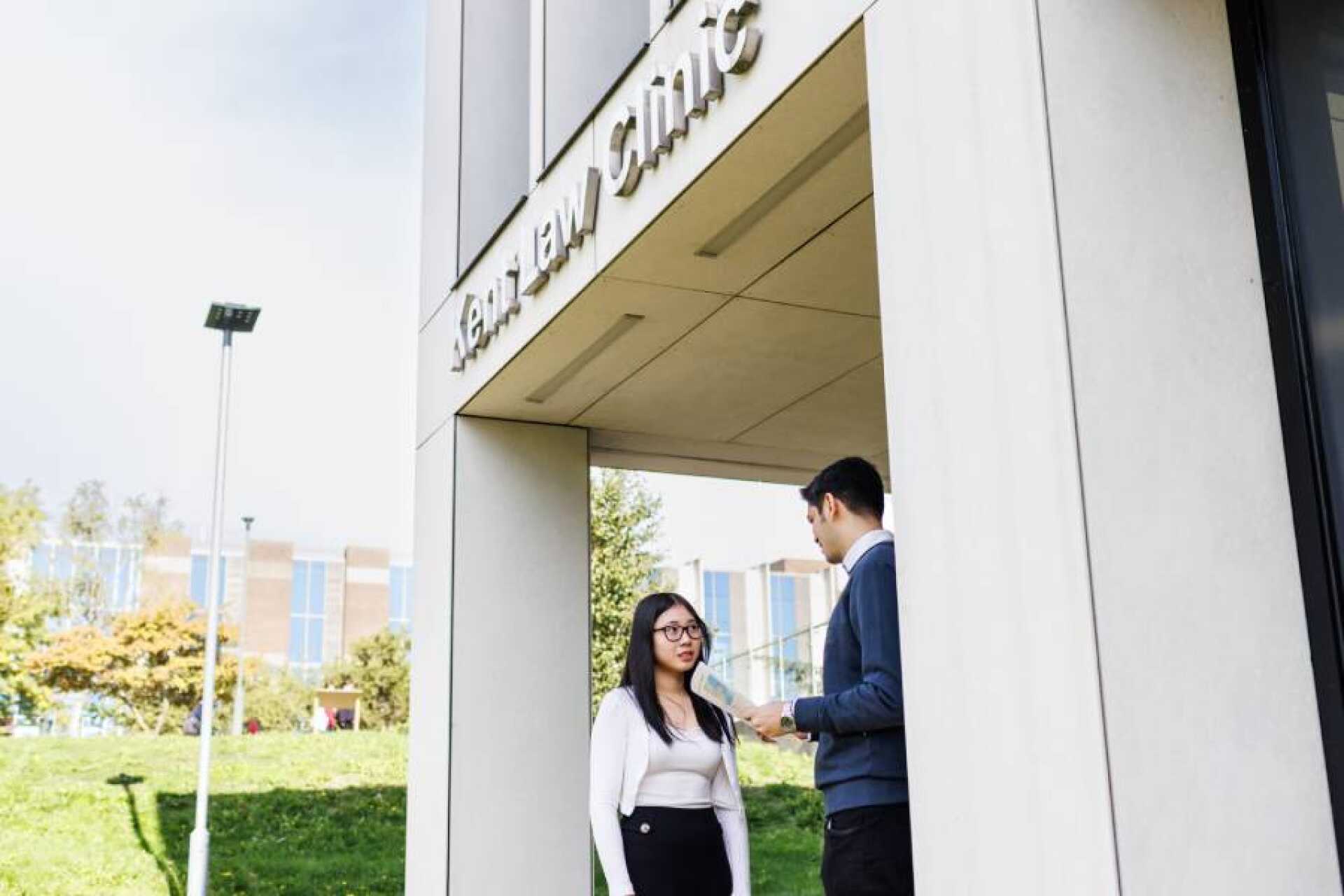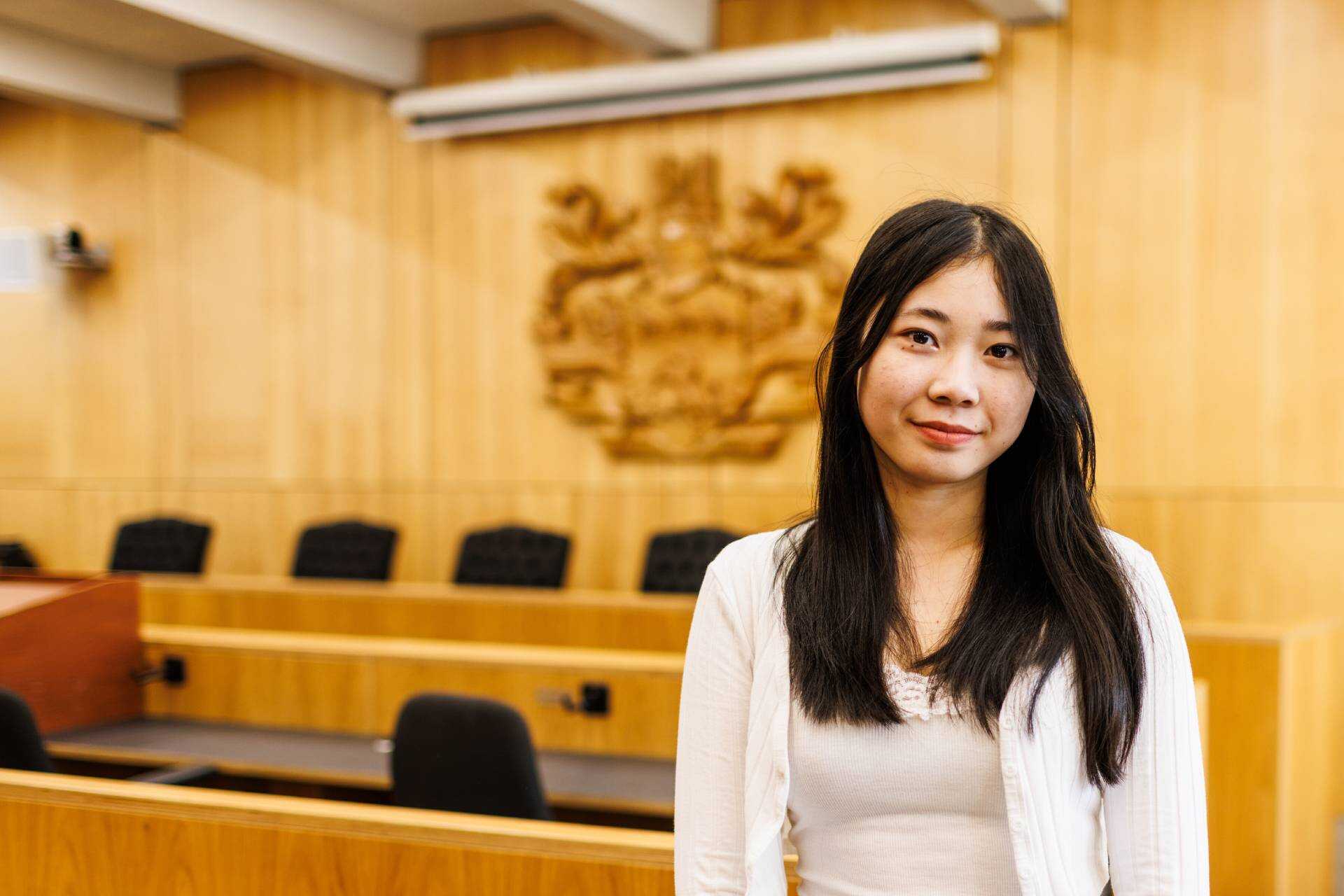Law (Integrated Master's in Solicitors’ Practice)
The MLaw blends high quality teaching and vocational legal training, giving you advanced level skills essential for success in a rapidly changing profession.

The MLaw blends high quality teaching and vocational legal training, giving you advanced level skills essential for success in a rapidly changing profession.
Prepare for a career in legal practice with this four year degree, which combines the content of the LLB in Law with a specialist final year that will prepare you for part one of the Solicitors Qualifying Exams (SQE1) and will introduce you to aspects of SQE2.
The course develops enhanced intellectual and transferrable skills, preparing you for the rapidly changing nature of legal practice. It provides a historical and contemporary examination of the legal profession, and critical engagement with themes such as technology; professionalism, identity, and ethics; justice, democracy, and citizenship; and capitalism and finance in the context of legal practice.
Alongside your 4th year of studies, you are encouraged to undertake Qualifying Work Experience (QWE). Kent Law School runs an MLaw Paralegal (QWE) Scheme where you can apply for paid paralegal jobs with law firms (in and around Kent). Please note that these positions are limited in number, can vary year to year, are subject to availability and are not guaranteed.

Helping students to make career choices, understand the legal working world or to navigate the application process for both work and study.
for research quality in The Complete University Guide 2025.

Our Paralegal Qualifying Work Experience (QWE) scheme will enable, empower and encourage students into the profession.
A physical and online space for law students designed to offer support with anything related to your academic study.

A partnership between students, academics, solicitors and barristers providing free legal advice and representation to those unable to afford it.
The University will consider applications from students offering a wide range of qualifications. All applications are assessed on an individual basis but some of our typical requirements are listed below. Students offering qualifications not listed are welcome to contact our Admissions Team for further advice. Please also see our general entry requirements.
AAB
The University will consider applicants holding BTEC National Diploma and Extended National Diploma Qualifications (QCF; NQF; OCR) on a case-by-case basis. Please contact us for further advice on your individual circumstances.
A typical offer would be to achieve Distinction, Distinction, Distinction.
136 Tariff points from your IB Diploma, Typically H6, H6, H6 or equivalent |
English Language at grade C/4
N/A
The University will consider applicants holding T level qualifications in subjects closely aligned to the course.
Pass the Access to HE Diploma with 45 credits at level 3, of which 30 should be passed at Distinction, 12 at Merit, and 3 at Pass; or 33 at Distinction, 6 at Merit, and 6 at Pass
The following modules are what students typically study, but this may change year to year in response to new developments and innovations.
The first three stages (or four – as appropriate to the course being integrated) are identical to the structure of the single-honours, major/minor or joint-honours law course.
For details of modules for stages 1-3 please refer to the relevant course page (LLB Law, Law Graduate Entry, LLB Law and Politics or LLB Law and Criminology)
Through diverse and timely assessments tailored to each course level, we aim to support the development and demonstration of legal knowledge, critical approaches, and both general and legal skills. Our progressive assessment approach builds and connects knowledge, providing constructive and timely feedback to enhance student learning throughout the course.
For a student studying full time, each academic year of the programme will comprise 1200 learning hours which include both direct contact hours and private study hours. The precise breakdown of hours will be subject dependent and will vary according to modules.
Methods of assessment will vary according to subject specialism and individual modules.
Please refer to the individual module details under Course Structure.
For course aims and learning outcomes please see the course specification.

The University has an excellent employment record, with Kent Law School graduates commanding some of the highest starting salaries in the UK. Law graduates can go into a variety of careers, including:

The University will assess your fee status as part of the application process. If you are uncertain about your fee status you may wish to seek advice from UKCISA before applying.
For details of when and how to pay fees and charges, please see our Student Finance Guide.
Students will require regular access to a desktop computer/laptop with an internet connection to use the University of Kent’s online resources and systems. Please see information about the minimum computer requirements for study.
Students may be required to visit a local court as part of their studies. Costs (if any) would relate to travel to and from a local court.
Find out more about accommodation and living costs, plus general additional costs that you may pay when studying at Kent.
Kent offers generous financial support schemes to assist eligible undergraduate students during their studies. See our funding page for more details.

We have a range of subject-specific awards and scholarships for academic, sporting and musical achievement.
We welcome applications from students all around the world with a wide range of international qualifications.

Student Life

Powered by progress
Kent has climbed 12 places to reach the top 40 in The Times Good University Guide 2025.
Kent Sport
Kent has risen 11 places in THE’s REF 2021 ranking, confirming us as a leading research university.

An unmissable part of your student experience.